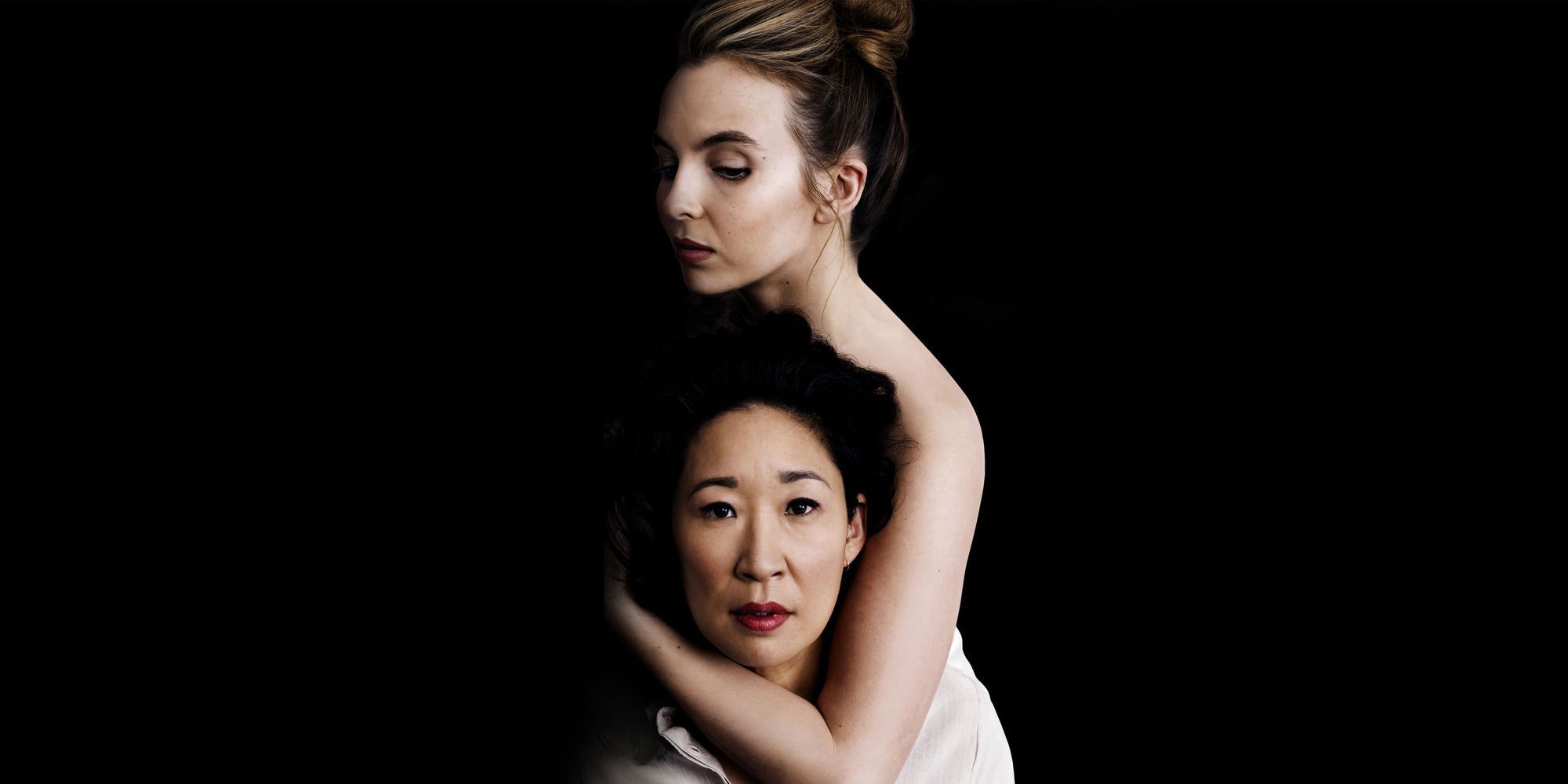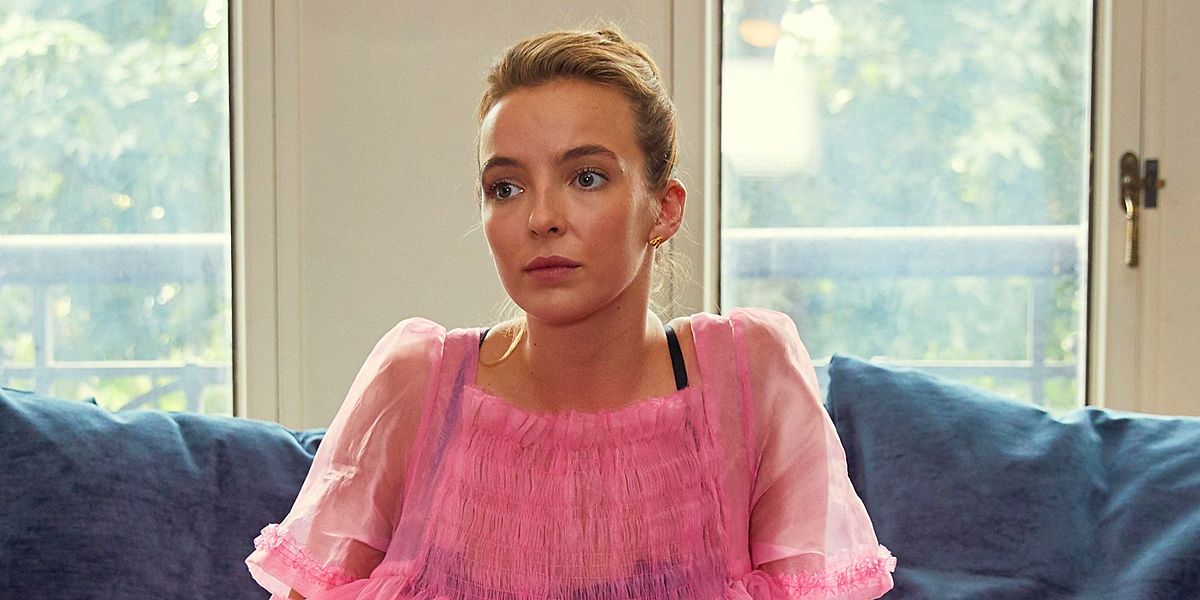At the end of the first season of Killing Eve, it looked like the creators might have exhausted their premise, having already brought together psychopathic assassin Villanelle (Jodie Comer) and obsessive MI6 agent Eve Polastri (Sandra Oh), in the culmination of their twisted pursuit/romance. Eve stabbed Villanelle and apparently left her for dead, which would seem to answer the question of whether the two would end up as lovers or enemies. So the new second season, which picks up literally 30 seconds after the previous season ended, has a lot of work to do in order to re-establish conflict and generate more suspense in the dynamic between the two main characters.
The two episodes available for review take a few steps forward along with a couple of steps back, but overall they represent a strong return for the show under new head writer Emerald Fennell, who penned both episodes (series creator Phoebe Waller-Bridge has stepped back a bit to focus on her numerous other projects). These two episodes find Eve and Villanelle once again apart and in pursuit of each other, after Eve flees the scene of the stabbing in Paris and heads back to some semblance of a normal life in London. Severely injured but, of course, not even close to death, Villanelle sets off to reunite with Eve, whom she refers to as her “girlfriend,” treating the stabbing as some sort of demented act of love.
One of the great things about Killing Eve is that the stabbing is a demented act of love, at least to some degree, and these episodes double down on the unhealthy connection between Villanelle and Eve. Even as Eve returns to her MI6 job alongside shady boss Carolyn Martens (Fiona Shaw) and joins a new team of agents who are tracking Villanelle, she remains absurdly smitten with the charismatic killer, and she declines to tell Carolyn about their intimate and violent interaction in Paris (instead she claims that Villanelle wasn’t home when Eve tracked down her apartment).
Meanwhile, Villanelle is far more interested in finding Eve than she is in returning to her old job working for the ill-defined secret organization known as “The Twelve,” and she does whatever she can to get herself to London, despite her injuries and lack of funds or resources. To fill the void left by Villanelle’s shift in objectives, Eve’s MI6 team starts tracking yet another female assassin, who goes unseen in the first two episodes but will presumably become another antagonist and/or object of desire for Eve and Villanelle. Adding a character like that can come off like a desperate move, but the creators introduce the idea deftly, and while it’s impossible to say at this point how this new presence will affect the balance of the show, it doesn't appear to be detrimental at this point.
While other supporting characters (including Eve’s often-frustrated husband and Carolyn’s MI6-analyst son) return, the focus remains entirely on Eve and Villanelle and their self-destructive pull toward one another. Oh and Comer deserve every bit of acclaim they’ve gotten for their performances, and even without sharing any scenes in these episodes, they convey the strong link between the two characters (aided by director Damon Thomas’ frequent match cuts between the two). Comer, who hasn’t received the same awards attention as Oh, has a gleefully chaotic presence as Villanelle, who never hesitates to use lethal force to get what she wants, or just because she’s bored. Oh’s work as Eve is subtler, but she gets across complex emotions with just a single grimace or exasperated sigh.
Killing Eve was never a particularly realistic spy drama, and the second season increases the ridiculousness even more. Instead of stretching believability, though, the heightened tone further sets the show apart, placing it firmly in its own oddball world. Waller-Bridge brought a substantial amount of sardonic humor to the show from the start, but there are even more overt jokes in these episodes, and the no-nonsense Carolyn has become significantly snarkier. With her questionable loyalties, she’s developed into a de facto antagonist, even as Eve works closely with her to discover the secrets of the Twelve.
The potentially large conspiracy is the show’s least interesting element, the aspect with the most similarities to typical espionage dramas, and the prospect of exploring it in further depth (as hinted by a couple of appearances late in the second episode) is not particularly enticing. Adding to that mythology is a reliable way to generate more material, but Killing Eve has never been a show about world-building and dense plotting. It’s a character piece about these two complex, strange and fascinating women, and the sooner they’re back face to face, the better. Already by the second episode it feels a bit like the creators are throwing up contrived obstacles just to keep Eve and Villanelle apart, even if it’s entertaining to watch the characters navigate those obstacles.
After the way the first season ended, it would probably have been perfectly satisfying for the show to end along with it. But while the second season may end up falling apart as it works to expand and extend the story, these opening episodes prove that the show’s strengths remain intact, and there’s good reason to be hopeful about what’s to come.


